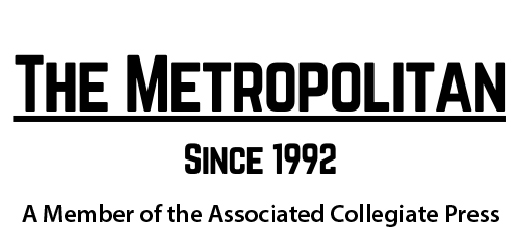C.T. Corum
Share:
The School of Communication, Writing and the Arts at Metro State recently revised the screenwriting major requirements. The screenwriting major, which has been offered since 1999, will now emphasize community engagement and learning through hands-on experience. The new requirements take effect in August 2018.
Professor James Byrne, screenwriting program coordinator, led the effort to update the major. He wanted screenwriting students to be fully prepared for their careers after college.
“Over the last two years, we took a look at all aspects of the screenwriting program in an effort to maintain quality and stay up-to-date,” Byrne said. “The whole program is much more outward looking now and emphasizes creativity and professional preparation.”
The bachelor of arts in screenwriting will now require an internship and completion of a feature-length screenplay. Students will also attend film festivals and participate in screenwriting events in the Twin Cities.
Autumn Kisling graduated in spring 2018 with a screenwriting degree. “[The community engagement] gets them involved with community films, and creates networking to others in the field,” she said of the changes to the major. She said the newly required internship will give students a glimpse into their chosen career field and add valuable experience to their resumes.
“Metropolitan State University has created a unique, quality screenwriting program and the changes made reflect its evolution,” Kisling said. “Engaging with the screenwriting community teaches a person more than just reading about it.”
The number of credits required to complete the degree has also been reduced, which allows students to finish their degree faster.
Sam Stiegelmeier, who also recently graduated with a degree in screenwriting, said the changes will help students make more connections in the film industry.
“It’ll open doors to internships and more networking opportunities, which will help get [students’] feet in the door,” he said. “As a recent screenwriting graduate living in Minnesota, I wish I’d have had more of these type of chances.”




